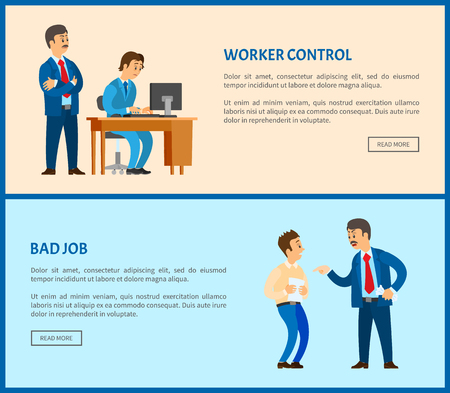Understanding Workplace Harassment in the UK
Workplace harassment is a serious concern across Britain, affecting individuals in all sectors and roles. The Equality Act 2010 legally defines harassment as unwanted conduct related to a protected characteristic (such as age, gender, race, disability, religion, or sexual orientation) that violates an individual’s dignity or creates an intimidating, hostile, degrading, humiliating, or offensive environment. It is essential for employees and employers alike to recognise what constitutes harassment and how it commonly appears within British workplaces.
Defining Workplace Harassment
Harassment goes beyond simple workplace disagreements or banter. It includes repeated or serious incidents that can have a profound impact on an employees well-being and ability to work effectively. In the UK context, it is not limited to face-to-face interactions; it can also occur through emails, phone calls, social media, or even indirect actions like spreading rumours.
Common Examples of Workplace Harassment
| Type of Harassment | Example Scenarios in British Workplaces |
|---|---|
| Verbal Harassment | Offensive jokes, insults about accent or background, unwanted comments about appearance |
| Physical Harassment | Unwelcome touching, blocking someones path, threatening gestures |
| Psychological Harassment | Excluding someone from meetings, undermining work deliberately, persistent criticism without cause |
| Online/Cyber Harassment | Sending inappropriate emails or messages, posting derogatory content about colleagues on social media |
| Sexual Harassment | Unwanted advances, suggestive remarks, sharing explicit material at work functions or online chats |
How Harassment Manifests in British Workplaces
The British workplace culture often values professionalism and courtesy. However, subtle forms of harassment—like exclusion from team activities or microaggressions—can still be prevalent. It is crucial to distinguish between friendly workplace banter and behaviour that crosses the line into harassment. Recognising these behaviours early empowers employees to take appropriate action and encourages organisations to foster respectful and inclusive environments.
2. Your Rights as an Employee
Understanding your rights is crucial when facing workplace harassment in Britain. The primary legal framework that protects employees is the Equality Act 2010. This law consolidates previous anti-discrimination legislation and provides robust protection against harassment on the grounds of characteristics such as age, disability, gender reassignment, marriage and civil partnership, pregnancy and maternity, race, religion or belief, sex, and sexual orientation.
Main Legal Protections
| Legal Provision | Description | Who Is Protected? |
|---|---|---|
| Equality Act 2010 | Protects against harassment related to protected characteristics at work. Covers both direct and indirect discrimination as well as victimisation. | All employees, workers, contractors, job applicants |
| Employment Rights Act 1996 | Offers additional protections relating to unfair dismissal and whistleblowing. | Employees (including some workers) |
| Health and Safety at Work etc. Act 1974 | Requires employers to ensure a safe working environment, including protection from bullying and harassment. | All employees and workers |
Your Protection under the Equality Act 2010
The Equality Act defines harassment as unwanted conduct related to a relevant protected characteristic that has the purpose or effect of violating dignity or creating an intimidating, hostile, degrading, humiliating, or offensive environment. It covers not only behaviour by colleagues but also third parties such as customers or clients.
Key Points to Remember:
- You are legally entitled to work in an environment free from harassment.
- Your employer has a duty of care to prevent and address harassment in the workplace.
- You are protected whether you are a permanent employee, agency worker, contractor, or even a job applicant.
- If you experience harassment, you have the right to make a formal complaint without fear of retaliation—this is known as protection from victimisation.
If You Need Support:
If you believe your rights have been breached, organisations such as ACAS (Advisory, Conciliation and Arbitration Service) and Citizens Advice can provide confidential guidance on how to proceed within the UK legal context.

3. Steps to Take if You Experience Harassment
If you find yourself facing harassment at work in Britain, it’s essential to act promptly and thoughtfully. Not only does this protect your own well-being, but it also ensures that your rights are respected under UK law. Here’s a practical guide on what you should do:
Documenting Incidents
Keeping accurate records is crucial for any future action. Document each incident as soon as possible, noting dates, times, locations, people involved, and what was said or done. If there were any witnesses, record their names as well.
| What to Record | Details to Include |
|---|---|
| Date & Time | Exact date and time of the incident |
| Description | What happened? Who was involved? |
| Location | Where did the incident occur? |
| Witnesses | Names of anyone who saw or heard the incident |
| Your Response | How did you react at the time? |
Seeking Support within the Workplace
You don’t have to handle this alone. In British workplaces, there are typically several points of contact available for support:
- Your line manager or supervisor (unless they are involved in the harassment)
- The HR department or personnel team
- A trade union representative (if you are a member)
Talking things through with trusted colleagues can also provide emotional support and sometimes useful perspective.
Informal Resolution Options
If you feel comfortable, addressing the issue directly with the person responsible can sometimes resolve matters quickly. This can involve calmly explaining how their behaviour affects you and asking them to stop. However, this isn’t always appropriate or safe—use your judgement or seek advice first.
When to Consider Informal Resolution
- The behaviour appears unintentional or based on misunderstanding
- You feel confident and safe raising the issue yourself
Tips for Informal Conversations:
- Stay calm and polite; focus on how their actions made you feel rather than making accusations.
- If possible, have another colleague present as a witness.
If informal resolution doesn’t work or isn’t suitable, don’t hesitate to escalate the matter formally within your organisation using grievance procedures. Remember, taking these steps is your right and is supported by UK workplace laws designed to keep everyone safe.
4. Reporting Procedures and Formal Complaints
When facing workplace harassment in Britain, it is essential to understand the correct reporting procedures and how to initiate a formal complaint. UK employment law encourages employees to address concerns promptly and through the appropriate channels. Below is an outline of typical internal processes, how to raise a formal grievance, and what you can expect from your HR department.
Internal Reporting Processes
Most organisations in the UK provide a clear policy for dealing with harassment. This usually starts with informal steps, where employees are encouraged to speak directly to the person involved if they feel comfortable. If this is not possible or does not resolve the issue, the next step is to report the matter to a line manager or supervisor. Many British employers also have designated harassment officers or confidential helplines for this purpose.
Raising a Formal Grievance
If informal measures do not resolve the problem, or if the situation is too serious for informal action, you should follow your companys grievance procedure. This typically involves submitting a written complaint outlining the nature of the harassment, relevant dates, times, witnesses, and any supporting evidence. The process is designed to ensure fairness and confidentiality throughout.
| Step | Description |
|---|---|
| 1. Informal Resolution | Speak directly or report to manager/supervisor |
| 2. Formal Grievance Submission | Submit a written complaint as per company policy |
| 3. Investigation | HR investigates, interviews involved parties and witnesses |
| 4. Outcome & Action | HR communicates findings and actions taken |
What to Expect from HR in Britain
The role of HR in Britain is to manage complaints impartially and confidentially. After receiving your grievance, HR will usually:
- Acknowledge receipt of your complaint promptly
- Conduct a thorough investigation (this may include interviews with all parties)
- Keep all information confidential within those involved in handling the case
- Provide regular updates on progress
- Offer support services such as counselling or mediation if needed
If you are not satisfied with the outcome, you have the right to appeal internally, and ultimately, external options such as ACAS (Advisory, Conciliation and Arbitration Service) or an employment tribunal may be available.
5. Legal Remedies and External Support
If internal procedures have not resolved your workplace harassment issue, there are several external routes you can consider to protect your rights and seek justice. The UK offers a range of legal remedies and support systems, tailored to ensure employees are treated fairly and with respect. Knowing where to turn next can make all the difference.
Employment Tribunals
An employment tribunal is an independent body that deals with disputes between employers and employees. If you believe you have been harassed and your employer has failed to act, you may file a claim with a tribunal. There are strict time limits—usually three months less one day from the date of the last incident—so it’s important to act promptly. Tribunals can order compensation, recommend reinstatement, or require changes in workplace policies.
ACAS (Advisory, Conciliation and Arbitration Service)
Before making a tribunal claim, it’s compulsory to notify ACAS. They offer an Early Conciliation service, helping both parties reach a settlement without the need for formal proceedings. This approach is often quicker, less stressful, and less costly than going through a full tribunal process.
Support Organisations
Beyond ACAS and tribunals, there are specialist organisations providing guidance, advocacy, and emotional support:
| Organisation | Type of Support |
|---|---|
| Citizens Advice | Legal advice on employment rights |
| Equality Advisory Support Service (EASS) | Advice on discrimination issues |
| Trade Unions | Representation and negotiation with employers |
| Mental Health Charities (e.g., Mind) | Counselling and emotional support |
Taking Action
If you’re unsure which route to take, seeking advice from one or more of these organisations can help clarify your options. Remember: it’s your right to work in a safe environment free from harassment, and these external supports exist to help you enforce those rights if internal steps fail.
6. Maintaining Professional Relationships During Conflict
Workplace harassment can take a toll on both your mental health and professional relationships. Navigating these challenges in the UK workplace requires tact, clear communication, and assertiveness. Below are some practical tips to help you maintain professionalism, set boundaries, and safeguard your wellbeing while conflicts are being resolved.
Effective Communication Strategies
Clear and respectful communication is key during tense situations. Consider the following approaches:
Communication Tip |
How to Apply |
|---|---|
| Stay Objective | Focus on facts rather than emotions when discussing issues with colleagues or managers. |
| Use “I” Statements | Express your feelings without assigning blame, e.g., “I feel uncomfortable when…” |
| Listen Actively | Acknowledge the other person’s perspective even if you disagree, which can help de-escalate tension. |
| Seek Mediation | If direct communication proves difficult, request support from HR or an impartial mediator. |
Setting Boundaries Professionally
Establishing healthy boundaries is essential in preventing further harassment and maintaining respect at work. Here’s how you can do it:
- Be Assertive: Politely but firmly let others know what behaviour is unacceptable to you.
- Document Incidents: Keep a record of interactions that cross boundaries to refer to if needed.
- Involve Line Managers: If boundary violations continue, escalate concerns through the proper channels as outlined by your company’s policies.
Protecting Your Wellbeing
Your health should remain a priority throughout the conflict resolution process. Take proactive steps such as:
- Access Support Services: Many UK employers offer Employee Assistance Programmes (EAPs) for confidential counselling.
- Take Regular Breaks: Step away from stressful environments where possible to recharge mentally.
- Connect with Trusted Colleagues: Share your experience with someone you trust for emotional support.
- Pursue External Advice: Organisations like ACAS or Citizens Advice provide free guidance tailored to British workplaces.
The Importance of Professionalism During Conflict
While it’s natural to feel upset or angry during workplace disputes, continuing to act professionally ensures your reputation remains intact. Demonstrating composure and respect—even under pressure—can positively influence outcomes and show that you are handling the situation appropriately according to UK employment standards.


